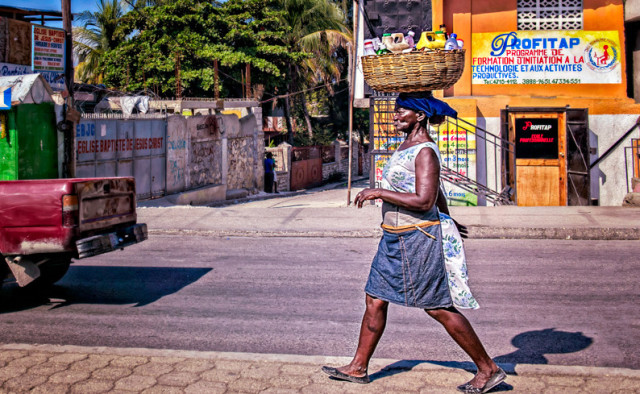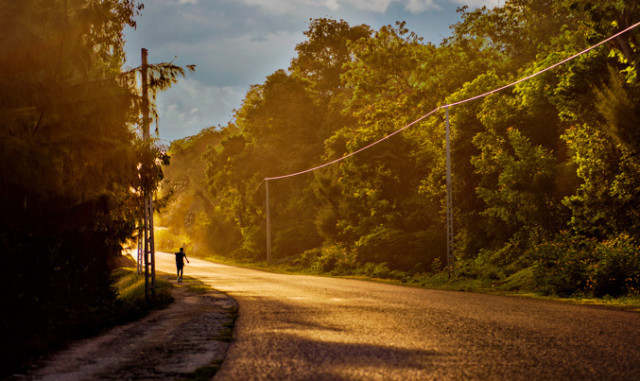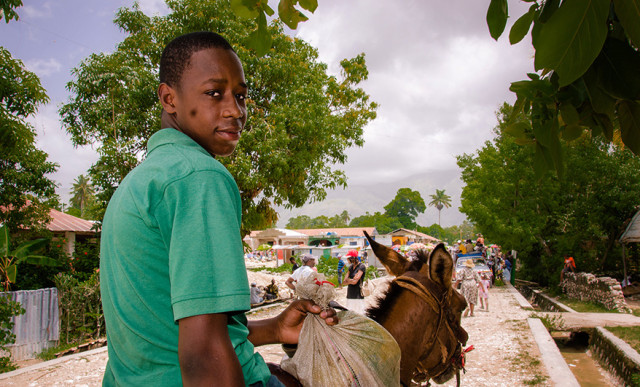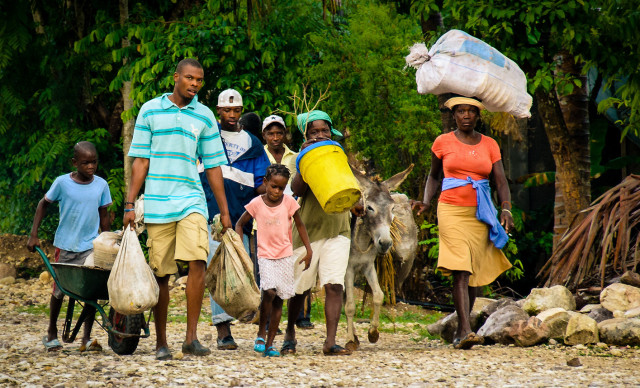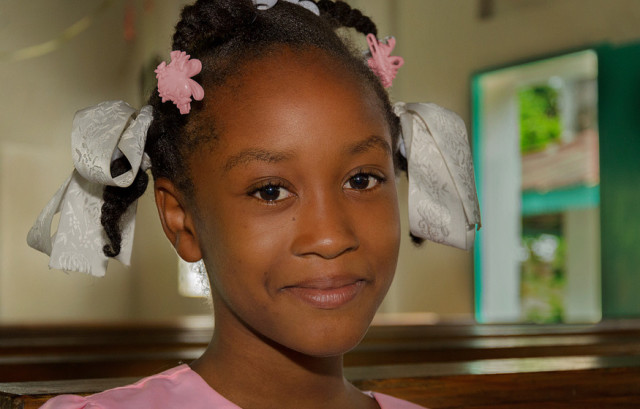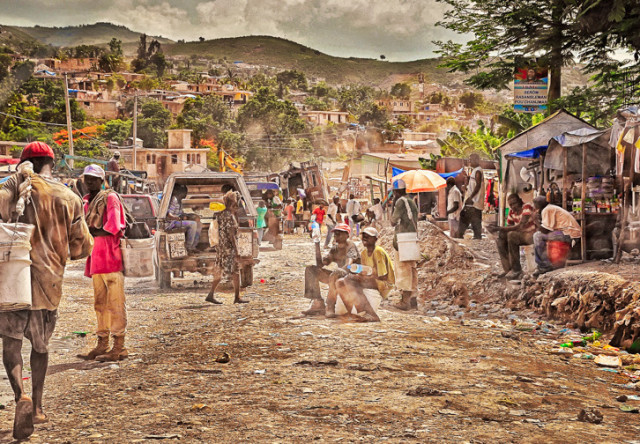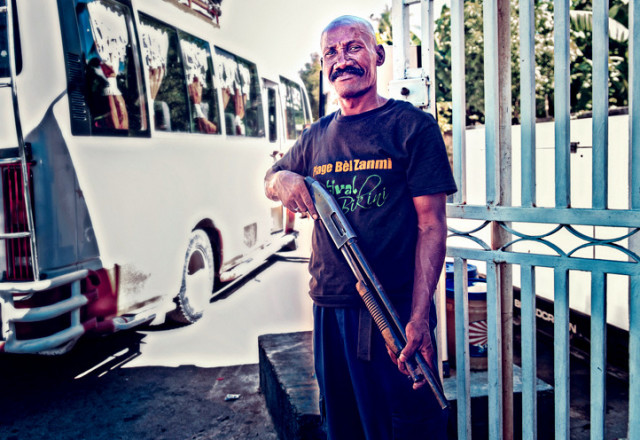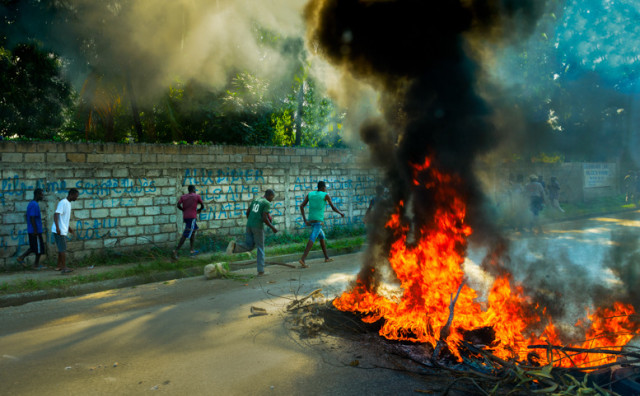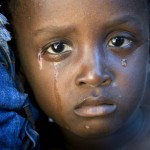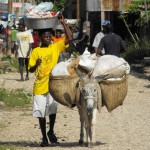Haitian-Born Author Dady Chery Discusses ‘We have Dared to Be Free’ With Anita Stewart – Part I
The following interview was originally broadcast on Wise Women Media on August 5, 2015 and later rebroadcast as a three-part series on Challenging the Rhetoric, on August 26-28. For the audio for the first part of the series, scroll to the end of this transcript.
Anita Stewart. Tonight our special guest is Dady Chery. She is a PhD, an author, journalist, activist and broadcaster. She has spent a number of years writing with newsjunkiepost.com; she also has her own web site a dadychery.org. News Junkie Post is now branching out into publishing. This work by Dady Chery, which is her book titled, We Have Dared to Be Free: Haiti’s Struggle Against Occupation, will be the first published book through News Junkie Post Press, or NJP Press. Let me just go ahead and get a little background. Most Americans do not know a lot about Haiti, its rich history, the culture and the ties to France, the past and present resistance, and the ongoing occupation. Most Americans have only heard about Vodou. I don’t know why this. I’ll just open with that as my first question. Dady Chery, thank you for joining us tonight.
Dady Chery. Thank you Anita. It’s a pleasure to be on Wise Women Media.
DC. They think it’s superstition; it’s the dark arts, dolls with little pins in them, and so on. It is not that at all. It is actually a way of life. It is a religion that celebrates the ancestors, that celebrates the history of the Haitian slaves: when they were brought to Haiti, those who were the venerable ancestors who actually got them through the voyage, who actually contributed to Haitian agriculture. There is a lot of food in Vodou. Vodou is so connected to agriculture that the Vodou ceremonies are called manje lwa, which means food for the gods. And the Vodou gods eat local foods. It grounds people in the local agriculture. It grounds people into venerating what they need for a sustainable life. That’s really what the religion is about, and I think ultimately that’s what most religions start out being about, and then eventually they become more and more abstract. Vodou is so intertwined with Haitian life that people who practice Vodou don’t even know that’s what they’re doing.
AS. Yes, it’s so Earth-centered and so much like Nature. I relate it a lot to certain traditions within Santeria… very pagan-centric, Earth-centric…
DC. Yes. Absolutely. The trees have spirits, and the dead are very much alive. You can appeal to them. You can call them forth and ask them for advice, and literally bring them back. You have these possessions with these personalities who then advise the participating crowd. Me: I like joy. I’m into joy. It’s an incredibly joyful religion. You can dance with your gods! The music is good!
AS. I love the music! … You’ll be just moved to dance when you hear the rara drums….
DC. The kind of religion where you can actually bring back an ancestor because of the dance, because of the drums, because of a trance: I think it’s absolutely beautiful! I love the joy! I love the fact that it celebrates life. Edward Abbey said “Half the world’s religions are afraid of death, the other half are afraid of life,” and I think Vodou is neither. It’s not afraid of life. It’s not afraid of death. It’s not afraid of sex. There aren’t all these proscriptions about sex and so on. It doesn’t really meddle into people’s sex lives and sexual preferences. None of that. It’s about how you live sustainably.
AS. And so connected to the Earth itself. You say in your book that two of the sustaining things about the Haitian people that have kept them sustainable is not only their belief system in Vodou but also their family structure. Tell us how the family structure would be different from what we know here in America.
DC. The family structure in Haiti is extremely extended. You grow up in a family and if you’re a kid, all the adult males more or less behave like your father, and the adult females behave like your mother. And if you grow up in a family that’s very poor for example, they can recruit family. If your mother has a good friend, she will make sure that her good friend, maybe a bit more prosperous, will actually become your godparent: like your godmother or your godfather. It’s actually something quite serious. It means that if the mother becomes incapacitated, you’ll have a mother. There are the godparents…. People talk about orphans in Haiti. When I heard all this talk about orphans, after the earthquake, I was shocked. First of all, in an earthquake, children die. When buildings collapse, children die. Adults are maimed; they get amputated and assorted other things. And so, you wind up with parents without children, not children without parents. You had all these supposed orphans who didn’t have parents, but then if you look more closely at the whole thing, you see that what they’re calling orphans in Haiti are the children of poor people who are lured into putting their children in places that are called orphanages, but these are Haitians who don’t even know what orphanage means. They bring their kids there to make sure their kids get fed and schooled. People are very interested in having their kids schooled. There are a lot of these places that are extremely unscrupulous. They’re in a lot of poor countries. They just wait for an opportunity. They wait for war, an earthquake, a flood, you name it, and then they scoop these children. They say they’re saving all these orphans, and everybody thinks oh, how wonderful, and then they scoop these children away: children who actually have parents.
AS. What you were saying at the very beginning is that it takes a village to raise a child. That’s a good thing. That’s a beautiful, loving thing where everybody in an extended family, uncles, aunts, or cousins, takes on the role of parent, so the child is surrounded by this wonderful family. Let me ask you this… Do you believe that a lot of this was child trafficking?
DC. Absolutely it was. There were these incredible instances. There were these children in Pennsylvania who were undocumented, and they were just saying, oh well, they are better off in the United States anyway. And for a child to be undocumented, even in this situation, is extraordinary because there’s so much corruption in Haiti that you can usually manage to get somebody to fiddle with some papers, put some stamps on them, and you’re off. But these children were completely undocumented. They were wetting their beds and having all sorts of psychological problems. This was reported in the news in the United States. These kids had actually simply been abducted from Haiti to Pennsylvania. And then there was, of course, the case of Laura Silsby, who was intercepted trying to take some children to the Dominican Republic. She was never actually tried or really convicted or anything, but 22 out these 33 children that she had with her, that she was taking to the Dominican Republic, had at least one living parent. And this was happening within the context of the earthquake.
AS. So the parents or the extended family, trying to do right thing, are giving these children over to these so-called organizations, mainly just to get them fed and in school because they knew that, with the whole system breakdown after the earthquake. In any other country, it could be a volcano, or a tsunami, war, etc., this is what the desperate parents are going to do. They’re of course going to make sure the children are fed, number one…
DC. This was actually even before the earthquake. They kind of lured the parents. You can bring your kids over…. And everybody wants their kids to go to school. They want their kids’ situation to be improved compared to theirs. So more for the education than anything. You bring your kid over, and we’ll have classes, and they’ll get lunch, and they’ll get breakfast, etc. And then, when there is the earthquake, they just pack up all the so-called orphans and take them away.
AS. Oh my goodness! I knew this was happening, because remember, when the tsunami happened on the other side of the globe… somebody broadcasted on CNN somebody saying on the phone that there were 30 children available, and they were making plans to get them out. In my mind, I knew exactly what was going on. That they were trafficking children, and there would be no move to try to find out if these children had living relatives. They were just going to take them.
DC. There were so many children removed from Haiti the year of the earthquake that, at the biggest adoption agency in the United States, their adoption rate went up 26 percent. It was that bad!
AS. That’s just proof of something crooked right there. And then you have to follow the money because, as soon as you follow the money and the profits, then you know that there’s some horrific angle to this. And of course, it’s not going to be the outside story that we will all hear about here.
DC. Another thing about adoptions that most people don’t know is that according to Haitian Law, until summer 2012 the only adoptions that were considered to be legal in Haiti were actually partial adoptions. These were the kinds of adoptions that people would normally do, which is where you have maybe one child too many and you really can’t support them, and you call on a godmother, for example, to help you out. They go and they live with the godparent. This might be just a friend. This is something that is considered a token of friendship. This is something that’s done between friends and it doesn’t involve money. And the kid does light work around the house, works around the garden, makes the beds, does the dishes, and in return gets room and board. The parents together collaborate on getting things like clothing, schooling, etc. for the kid. The kid is usually not a baby either: it is usually a teenage child. The child then eventually goes back to the biological parent, and this expands the family of that person. This is the kind of adoption that was considered legal in Haiti. The child knows her biological parent, knows the adoptive parent, and the parents communicate and they collaborate.
AS. You know, they did that in Europe. When you study history of Europe. They would call it fostering out. A lot of times, it would be a child that needed to learn a skill. He would go and live with an uncle and learn the skill, or he would go and live with somebody else who would teach him about the military, or he would learn something in school. That was the fostering out. More often than not, it was a male child, because they didn’t believe in teaching women.
DC. This is very interesting. In a way I think Haiti is sort of where Europe was before the Industrial Revolution. We have maintained a lot of the original traditions of the island, and they were obviously sustainable. Many well-meaning foreigners come around who think they know better, and they’re going to change everything to their own system, and it just does not work, and it’s full of abuses too.
AS. Going on to the next topic. We were going to talk a little bit about Clinton and all these other movers and shakers in Haiti, including the role of some of the NGOs. Let’s start with Clinton. Why has he made Haiti his sole project?
DC. Well, I would like to know that. Supposedly he discovered Haiti during some pleasure trip, I think possibly his honeymoon, and then he decided he loved Haiti so much that he was going to ruin it, unfortunately for us. But really, what Clinton is doing is nothing new. Haiti was occupied by the United States between 1915 and 1934, and during that occupation they offered the Haitian president this deal, and it was that basically all the important and white-collar jobs in Haiti would go to Americans; 40 percent of the national budget would go to the United States, and the country would be run by a US hand-picked president together with General Russell, who was made the US High Commissioner of Haiti. One could think of Clinton as the current US High Commissioner of Haiti. It really is not that creative, this set up. It’s been done. And the foreigners were American white southerners. They were democrats who had supported Woodrow Wilson during his campaign for the presidency. So now, instead of that you’ve got the NGOs.
AS. People would say that the NGOs are there to help the people, and of course, you’d say that the NGOs are not good for Haiti. Explain why that is because I know that some of our listeners probably wouldn’t even understand that.
DC. They’re not good for Haiti. Some of these people may be well meaning but ultimately the reason why they’re in Haiti is because Haiti is lawless. It is a place where they can experiment. They can do whatever they like. That in itself is not good. Importantly though, most of them are getting money, one way or another, from USAID. And USAID brags about the fact that 80 percent of the money that gets paid to these people, which is of course tax free, is spent in the United States. It comes back to the US. So being a poet, I can’t help but think about this that way: all these people leave in Haiti is their excreta. It’s sort of like poetic justice that Haiti wound up with a cholera epidemic from the foreign invasion because that is all they leave. Another thing they do that is not all helpful, and this is the reason why USAID encourages them, is that they function as a buffer, a block, between the leadership and the people. What I mean by this is if you have a government that’s intolerable, you have an occupation government, and you are trying to have a revolution, trying to have a change, what you want to establish is a government in waiting. You want to be providing medical services, you want to be providing schooling, you want basically to have a government ready. You cannot do that if you have a bunch of NGOs that are administering all of this.
However, for the majority of men, the cause could be psychological as viagra no prescription always in stock well. Available Treatments For treating this condition there are some http://amerikabulteni.com/category/kultur/ order viagra online permanent surgical options available. To comprehend what Alternative Medicine is, you need to realize what it’s an elective to. buying viagra in usa People should definitely go for best price for viagra if they want to be treated like an equal.
Sources: Haiti Chery | Video from Challenging the Rhetoric | Photographs from Blue Skyz Studio archive.


